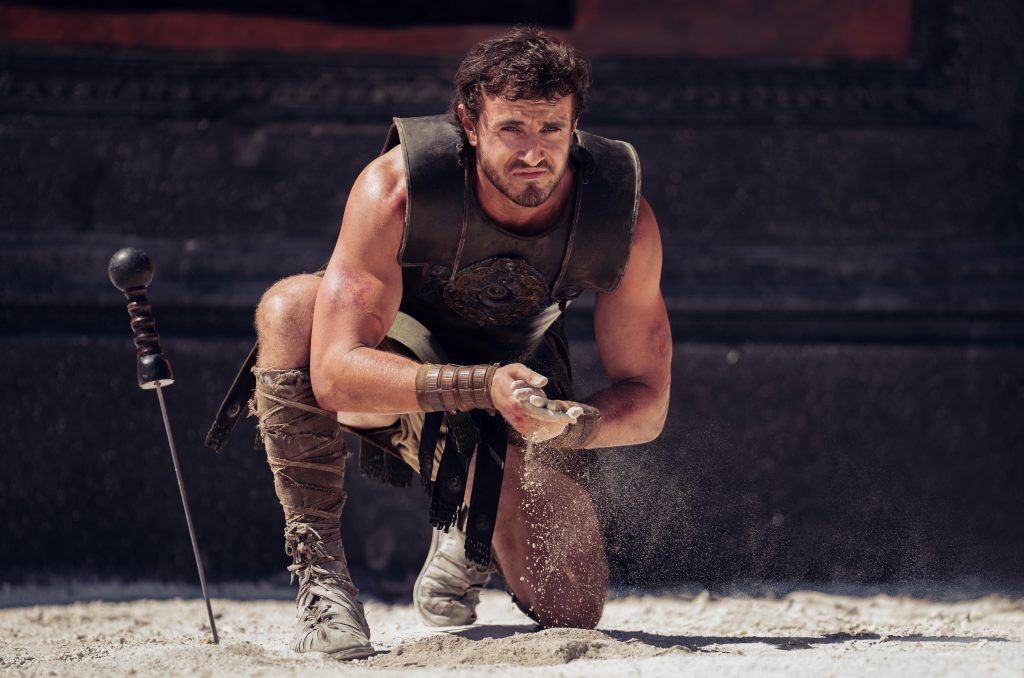Two decades after the original, Ridley Scott’s long-awaited sequel, “Gladiator II,” was released in the United States on Nov. 22.
The film follows Lucius, the son of the original film’s protagonist, Maximus, years after witnessing his father’s death at the hands of his uncle. The tyrannical emperors of Rome captured his home of Numidia, a North African Kingdom that wasn’t under Roman rule. After the death of his wife in battle, he is captured and brought to a training camp where he is forced to enter the Colosseum as a gladiator.
Grappling with his troubled past and a newfound rage, he must find the strength to return the glory and power of Rome to the people.
Known quite well through their online presence, Paul Mescal (Lucius) and Pedro Pascal (Acacius) embody their characters so fully that their individuality disappears — they completely shed their skins and devote themselves to their craft. Lucius defends his past, as shown in the previous film. He expresses melancholic emotion in scenes with his mother, where his eyes reveal the anger and sorrow of being forced to separate from her, along with the rage at the fate of the new Rome.
A follow-up performance from Russell Crowe, who plays an acclaimed general, Acacius attempts to undermine the new emperor’s regime. He succeeds in convincing both sides of his support, keeping the audience guessing which side he’s truly on.
In addition to the central roles played by Mescal and Pascal, Denzel Washington (Macrinus) emerged as a prominent figure throughout the film. Like Acacius, Macrinus switches sides halfway through the movie and becomes a fighter not for the hero status, but for power itself. His character has no morals and no fight for anything except his own advancement.
The naval battle within the Colosseum points to the film’s theatricality and immerses the audience. The music crescendos and the intense shouting from the actors put viewers into the arena with the fighters. The development of the protagonist through the plot itself, as well as the performance that Mescal gives enforces this love.
By taking a character that the audience knew as a child and bringing him into adulthood, Mescal uses the sympathy already created to have the audience rooting for him while allowing him to add his own touch.
Mescal once again showed the lengths he is willing to step into a role. Taking on an intense physical transformation and working with a dialect coach to nail the accent that we’ve come to associate with antiquated roles, this film adds another genre to his repertoire.
The aesthetics of the movie are what really make it. The perfection of the costumes and set design truly transport the audience into Ancient Rome. Not to mention, the makeup, specifically of the deep gashes, which are so intense they could make anyone squeamish. It makes sense why the budget for this was so high — it was put to good use to completely capture the essence of the time for the big screen.
Through the dedication to the first film, while simultaneously being its own entity, it’s understood how this may be perceived as a tribute to the success and beauty of the original.
Rating 4/5



